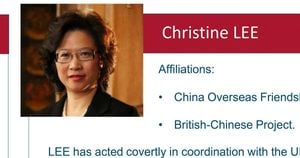New Delhi: A new legislative proposal, the Constitution (129 Amendment) Bill, 2024, which seeks to implement the 'One Nation, One Election' strategy, has stirred considerable debate and fierce opposition within India's political arena. Union Law and Justice Minister Arjun Ram Meghwal introduced this bill in the Lok Sabha on Tuesday, aiming to synchronize election cycles for the Lok Sabha and state assemblies across the country.
The proposal surfaced after the Union Cabinet endorsed recommendations from a High-Level Committee led by former President Ram Nath Kovind. This committee suggests conducting simultaneous elections starting with the Lok Sabha and assembly elections, with local body elections scheduled to follow within 100 days.
Despite the government's push, prominent opposition leaders have been vocal against the bill. Congress MP Manish Tewari expressed deep concerns about its constitutionality, asserting, "Beyond the seventh schedule of the Constitution is the basic structure doctrine... absolute assault on the basic structure of the Constitution and are beyond the legislative competence of the House."
His sentiments echoed among other lawmakers, such as Samajwadi Party MP Dharmendra Yadav, who adamantly remarked, "I cannot understand how... this Constitution Amendment Bill has been brought to undermine the basic spirit and structure of the Constitution."
The essence of Tewari's argument centers on protecting India's federal structure. He emphasized, "India is a union of states; you cannot arbitrarily cut short the tenure of state assemblies." This perspective highlights the inherent imbalance this bill could impose, disrupting the longstanding relationship between central and state governments.
Congress’ position on the bill is more than opposition; it raises substantial constitutional questions and seeks accountability. Congress leader Jairam Ramesh vehemently rejected the proposal, stating, "The Congress party firmly, totally, comprehensively rejects the One Nation, One Election Bill... it goes against the basic structure and it is meant to throttle democracy and accountability in this country." He reinforced the party's historical resistance to the idea, linking it to broader fears of systematic changes to India's constitutional framework.
Drawing on longstanding grievances, Ramesh propelled serious allegations against the ruling party, claiming, "The One Nation, One Election Bill is only the first milestone; the real objective is to bring a new constitution." His assertions suggest significant apprehension about the underlying motives of the bill, positing it as part of the BJP's larger political agenda.
Adding to the criticism, Shiv Sena UBT MP Priyanka Chaturvedi characterized the bill as part of efforts to centralise power away from states, denouncing, "The One Nation, One Election is being brought in the guise of centralising power again." This charge resonates with those wary of excessive consolidation of power within the federal structure.
Ramesh's remarks were accompanied by calls for wider discussions, as NCP-SCP MP Supriya Sule urged for the establishment of a Joint Parliamentary Committee (JPC) to thoroughly evaluate the bill's ramifications. "We are demanding the Joint Parliamentary Committee (JPC) should be done, and discussions should take place," Sule insisted, aiming for collaborative political engagement on such pivotal proposals.
The urgency for discussion was reflected through various perspectives presented during parliamentary sessions. Congress MP Pramod Tiwari criticized the government for not including opposition parties early on, insinuated the proposal was more of distraction from pressing issues confronting citizens, underlining his statement with, "They clearly know they neither have majority support in the Lok Sabha nor the Rajya Sabha."
This brings forth the deep-seated apprehensions shared among the opposition, who fear the repercussions of this bill on Indian democracy. K. Suresh, another Congress MP, voiced dissent emphasizing, "This is against the interest of Indian democracy and our federal system. That is why we are strongly opposing it."
Samajwadi Party MP Ram Gopal Yadav added his voice to the chorus, stating, "Our party will oppose it because it is against all sections of the Constitution." This widespread condemnation fortifies the notion of unified opposition against perceived encroachments on democracy and constitutional values.
Given the strong dissent and various calls for broader discussions, the introduction of the 'One Nation, One Election' bill appears to lead to heightened political tensions. Opposition leaders underline the importance of maintaining the basic structure of the Constitution amid claims of centralization and potential erosion of state powers.
With the discussions expected to evolve as parliament sessions continue, the future of the proposal hinges on the government's ability to navigate around significant constitutional scrutiny. The stakes for Indian democracy remain high, with many viewing this bill not just as legislative action, but as pivotal to the ideological battle shaping the future governance of the nation.



